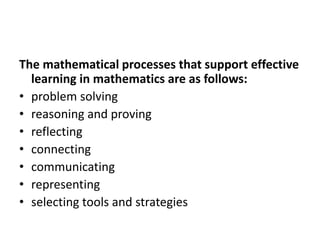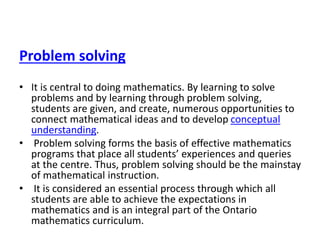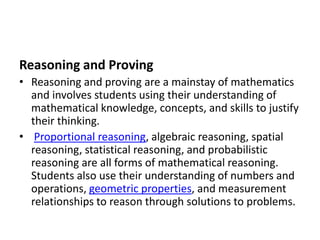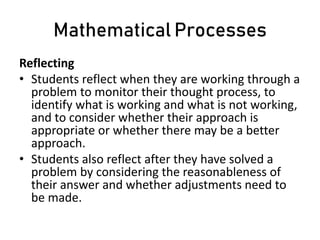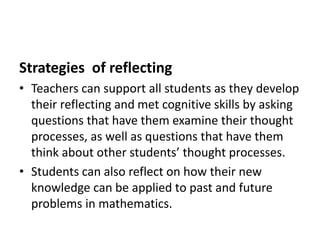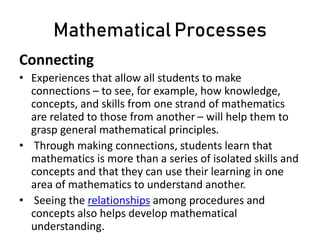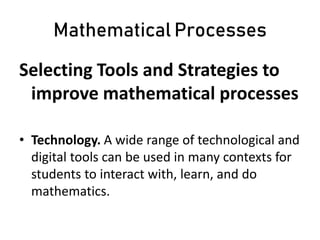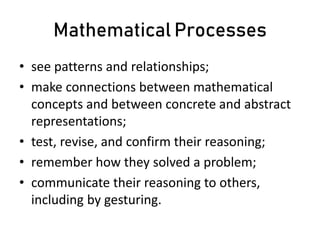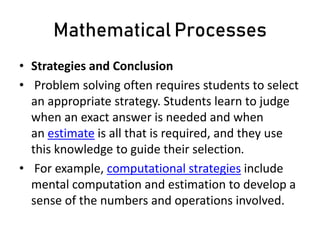This document discusses the key mathematical processes that students use to learn and apply mathematics. It defines mathematical processes as the methods through which students acquire and apply mathematical knowledge, concepts, and skills. The key processes discussed are problem solving, reasoning and proving, reflecting, connecting, communicating, representing, and selecting tools and strategies. Each process is defined and examples of how students can develop skills in each process are provided.


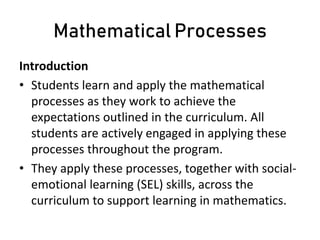


![Mathematical Processes
Example of Mathematical process
• Find the first derivative of f( )
• Find the area of the region that is bounded by
(x =1), (x= 4), (y= 0),
• After justifying its applicability, verify the
conclusions of the Mean-Value Theorem for
the function f ( )over the interval [0
2].](https://image.slidesharecdn.com/mathsppt-221021090749-d9ead9df/85/MATHEMATICAL-PROCESSES-6-320.jpg)
